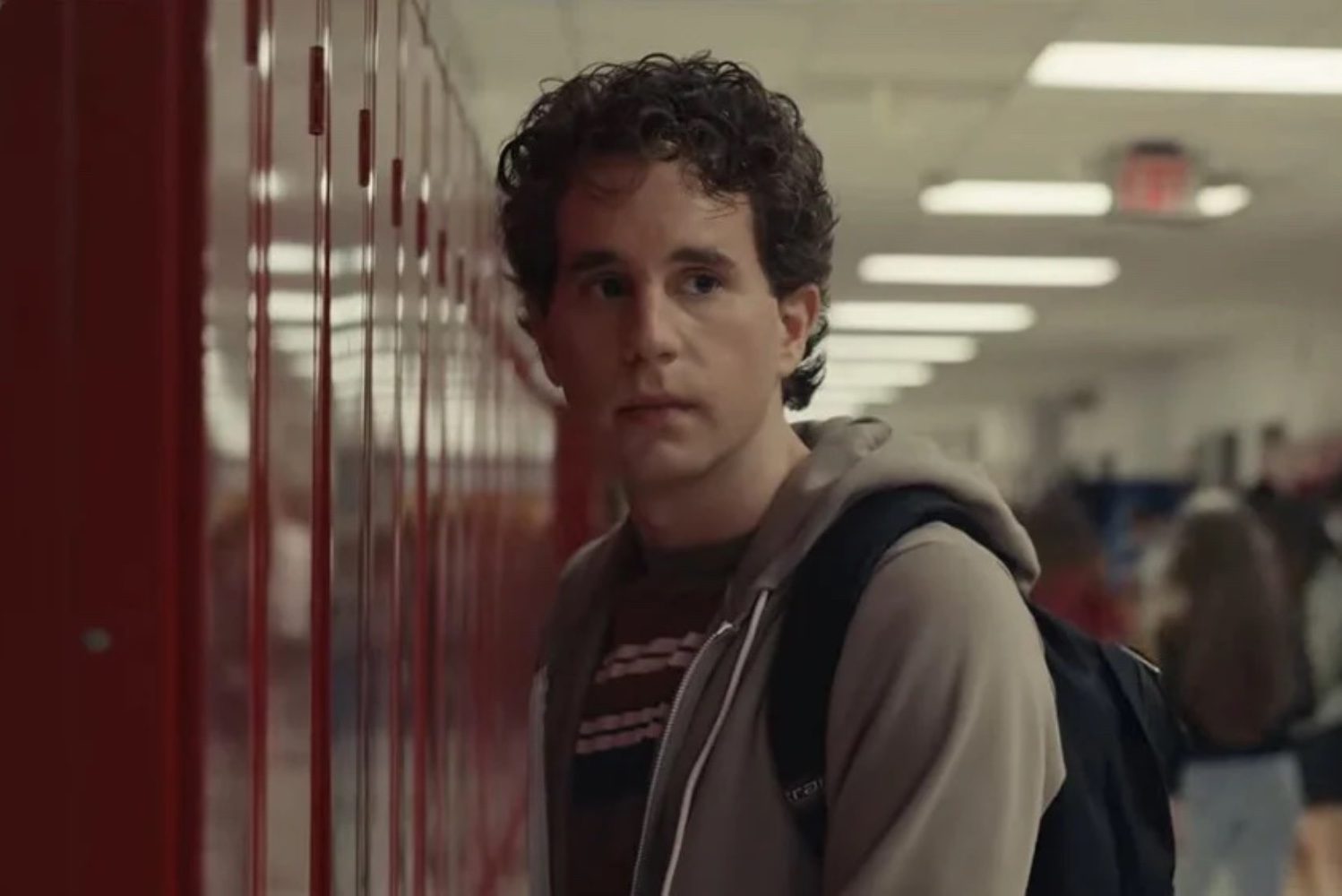Warning to the reader: Major spoilers for “Dear Evan Hansen” ahead.
While the odd choice to cast 28-year-old Ben Platt as a high schooler occupied most of the online conversation surrounding “Dear Evan Hansen,” the film presents a much larger problem — Evan Hansen himself.
Prior to watching “Dear Evan Hansen” in theaters, I had minimal knowledge of the musical that mostly stemmed from my theater friends in high school obsessing over it. This popularity led to it winning six out of the nine Tony Awards it was nominated for, including best musical and best actor in a leading role (which went to Platt, who originated the role on Broadway). While the show received widespread acclaim from critics and fans alike, there are also a few who voiced concerns about the titular character’s motivations, such as Slate contributor Jason Zinoman.
I will note that while I have not seen the musical, it became clear to me that the problems that I had with the movie were definitely prominent within the production after doing some research and reading articles such as Zinoman’s.
Evan Hansen is a shy teenager who suffers from social anxiety. As he walks through the halls on his first day of school, he goes unnoticed by his peers. It’s clear that he struggles to connect with others, particularly notable when he stumbles awkwardly through social interactions with his family friend Jared (Nik Dodani).
Frustrated after having a less than stellar morning, Evan goes to the library to complete an assignment from his therapist to write a letter to himself detailing the good moments of each day. In the letter, he ponders whether or not anyone actually notices he’s there, especially his crush, Zoe Murphy (Kaitlyn Dever). Upon finishing the letter, he signs and (accidentally) prints it, but before he can pick it up, Zoe’s brother Connor (Colton Ryan) gets a hold of it. He reads the letter and thinks Evan is trying to make fun of him as he is often the target of cruel bullies at school. Before Evan is able to explain himself, Connor storms off with the letter.
A few days later, Evan is called into the principal’s office. There, he meets Connor’s parents, Cynthia (Amy Adams) and Larry (Danny Pino), who inform him that Connor died by suicide with Evan’s letter in his pocket. They believe that it is a suicide note addressed to him. At first, Evan attempts to deny it but he ends up going along with the story, unable to reveal the truth that the letter is actually for his therapist.
The lie continues to grow as Evan joins the Murphys for dinner later that day. When asked about the time he spent with Connor, Evan tells the family a fictionalized tale about a day he spent with Connor at an orchard (“For Forever”). Evan tells this lie with ease, enjoying the attention that he receives from the family. It’s devastating to hear him muse about times they never shared as Cynthia tearfully listens, happy to hear that her son had a friend.
This is the first of many moments in the film where I felt like a bystander to Evan’s deceit. It immediately becomes hard to root for the character once you’re made privy to the fact that he’s lying to a grieving family as they deal with such a tragic loss.
Evan enlists Jared to help him create fake backdated emails so it will appear as though he and Connor were the best of friends (“Sincerely Me”). The song makes light of the drug problems that Connor struggled with, as Evan paints himself to be a hero, urging Connor to stop using them. It also includes several jokes about Connor having a sexual relationship with Evan. Despite being the intention to bring comedic relief to the plot, these lyrics are insensitive, given how fresh Connor’s passing is. Also, with how little the audience knows about Connor, it’s in poor taste to have the character return to dance alongside Evan happily rather than share his own side of the story.
Things take a creepier turn as Evan begins to hang out with the family more, particularly as he spends more time with Zoe, who asks him what her brother thought of her. Obviously, Evan has absolutely no idea what Connor thought of Zoe so he improvises, sharing his own stalker-ish observations about her (“If I Could Tell Her”). I felt uncomfortable in my movie theater seat during this song, as the audience knows about Evan’s secret crush on Zoe. He seemed to be taking advantage of her grief and using it as an opportunity to make his move.
These thoughts returned later on in the film, as Zoe confesses her feelings to Evan (“Only Us”). As Evan joins her in song, he relishes in the fact that she likes him for him. The irony in this moment is laughable, given the massive lie their entire friendship and now budding relationship is based on. Once again, my heart broke for Zoe, knowing that she is being actively deceived as she tries to find happiness in her life again.
Evan is persuaded to speak at Connor’s memorial at school and while he preaches to his fellow classmates that they are not alone (“You Will Be Found”), it feels hollow. Evan was never there for Connor like he so publicly claimed to be, so watching his speech go viral and seeing countless people be inspired by him adds to the deception. He’s receiving endless amounts of praise, even popularity, while taking advantage of a deceased peer.
When listening to the song on its own, it is easy to see why “Dear Evan Hansen” has become so important to so many. The lyrics in this track, along with “Waving Through a Window,” are inspiring and uplifting. This is likely thanks to writers Benj Pasek and Justin Paul, who are also known for penning songs for “La La Land” and “The Greatest Showman.” However, once it’s put within the context of the story, I couldn’t help but question the boy who was delivering said message. Sure, Evan Hansen was “found” but it was only because he chose to manipulate the grieving Murphy family and take advantage of Connor’s death.
The truth eventually comes out, and Evan confesses while bearing witness to the tension his falsified letters have caused among the Murphys. As Evan admits to lying, he also reveals some of the reasoning behind his choice to continue pretending to have been Connor’s friend: “I guess I thought I could be part of this / I never had this kind of thing before,” he sings, listing that he’s never had “the perfect girl” or parents who were there for him (“Words Fail”). While he does state that this is not an excuse for his behavior, the film seems to want the audience to forgive Evan for what he’s done, even as they bear witness to the pain he’s caused.
Even though Evan is distraught at this moment, torn apart by his severed connection to the Murphys, it’s hard to feel bad for him. His pain and trauma are valid; however, this does not mean that the family should forgive him. It’s no shock that they want nothing to do with him after learning about what he’s done.
Evan attempts to right his wrongs by reaching out to those that knew Connor, asking for personal anecdotes or videos. He eventually compiles everything he finds and sends it to the Murphys. This is a jarring departure from the plot of the musical, where they decide to keep what he’s done a secret from the public in order to safeguard his future. However, despite this, the character still doesn’t face any major consequences for his wrongdoings. There’s hardly any reaction from the people online who were moved by him and, at school, the worst retribution he receives is his peers staring at him while he eats his lunch. His actions are basically absolved by the time the credits roll — an unfit ending for all that has occurred beforehand.
With a 31% on Rotten Tomatoes (a score that’s dropped several times since I began writing this article), it’s clear that “Dear Evan Hansen” isn’t as big of a hit in cinemas as it was onstage. As many come together online to poke fun at the muddled plot and the messy main character, it’s apparent that Universal Pictures should have slammed on the brakes for this adaption.

















